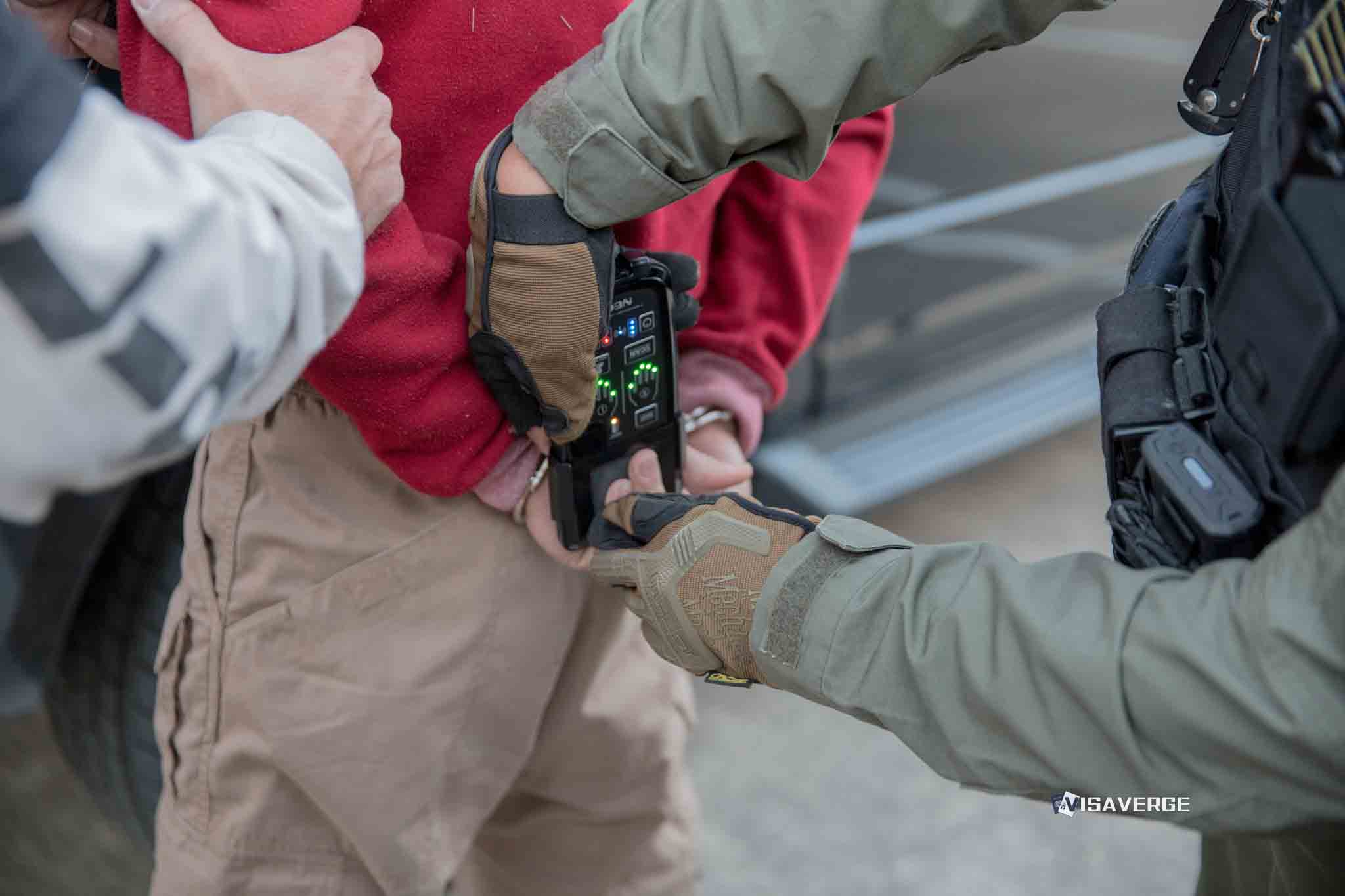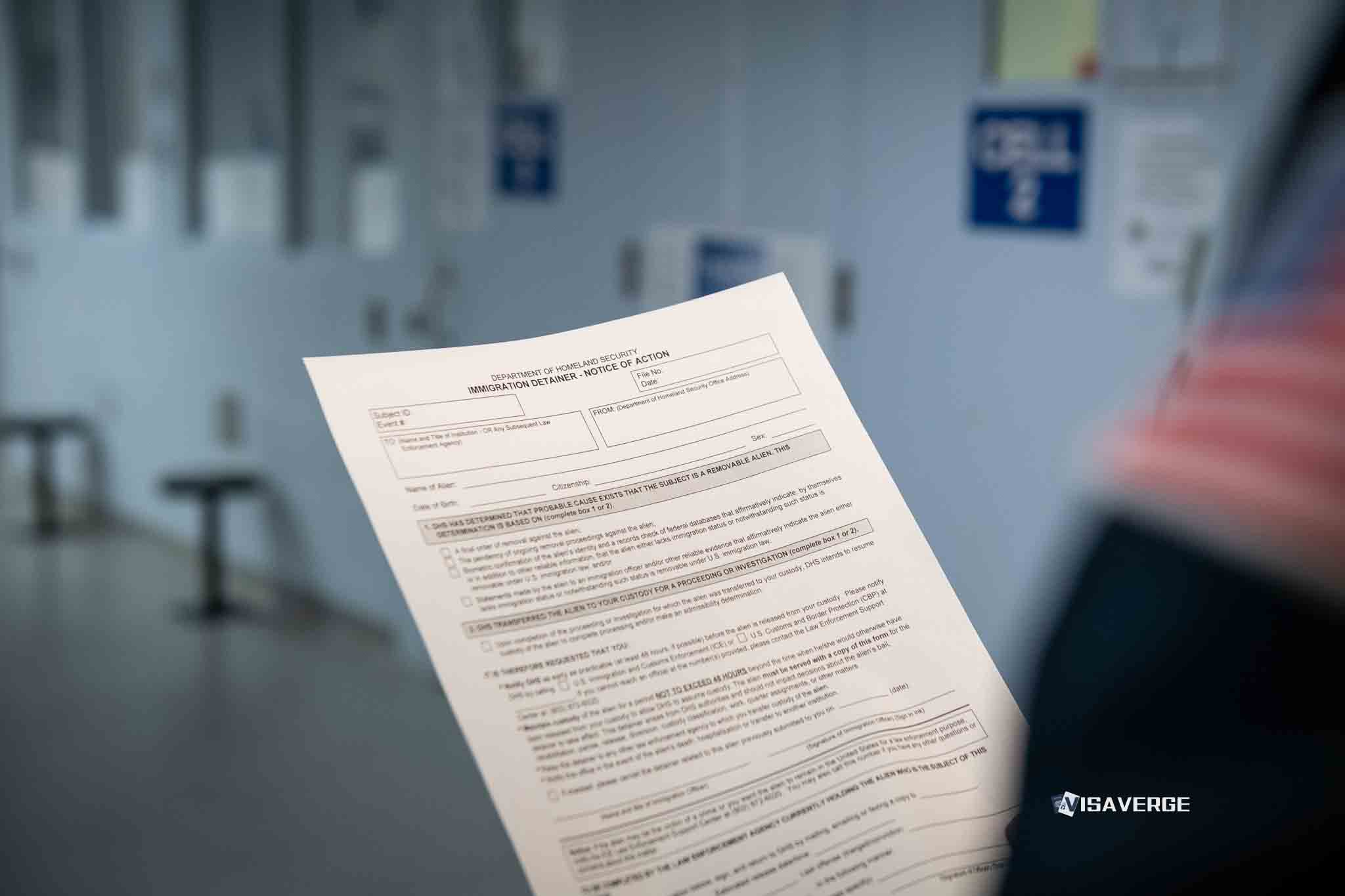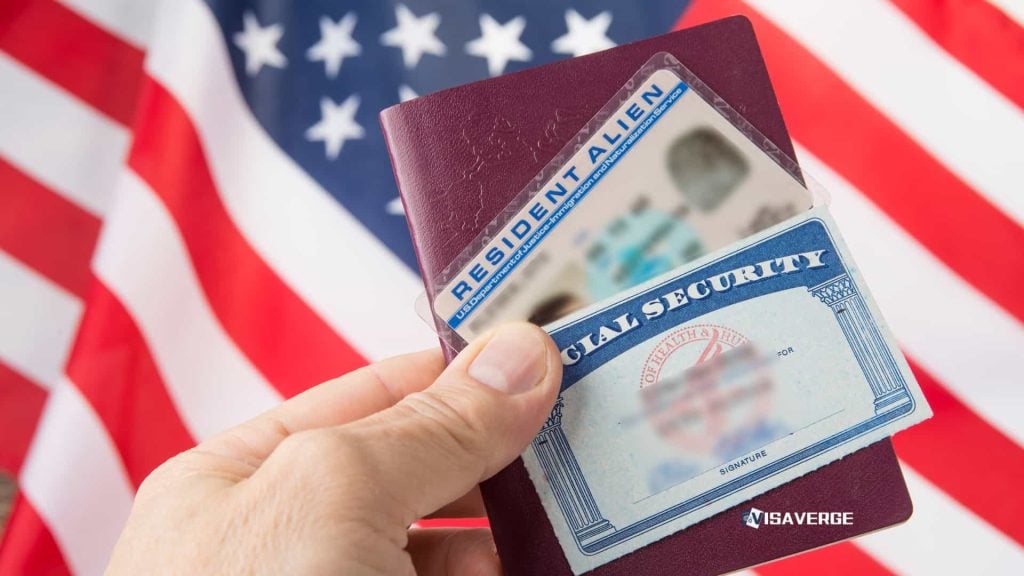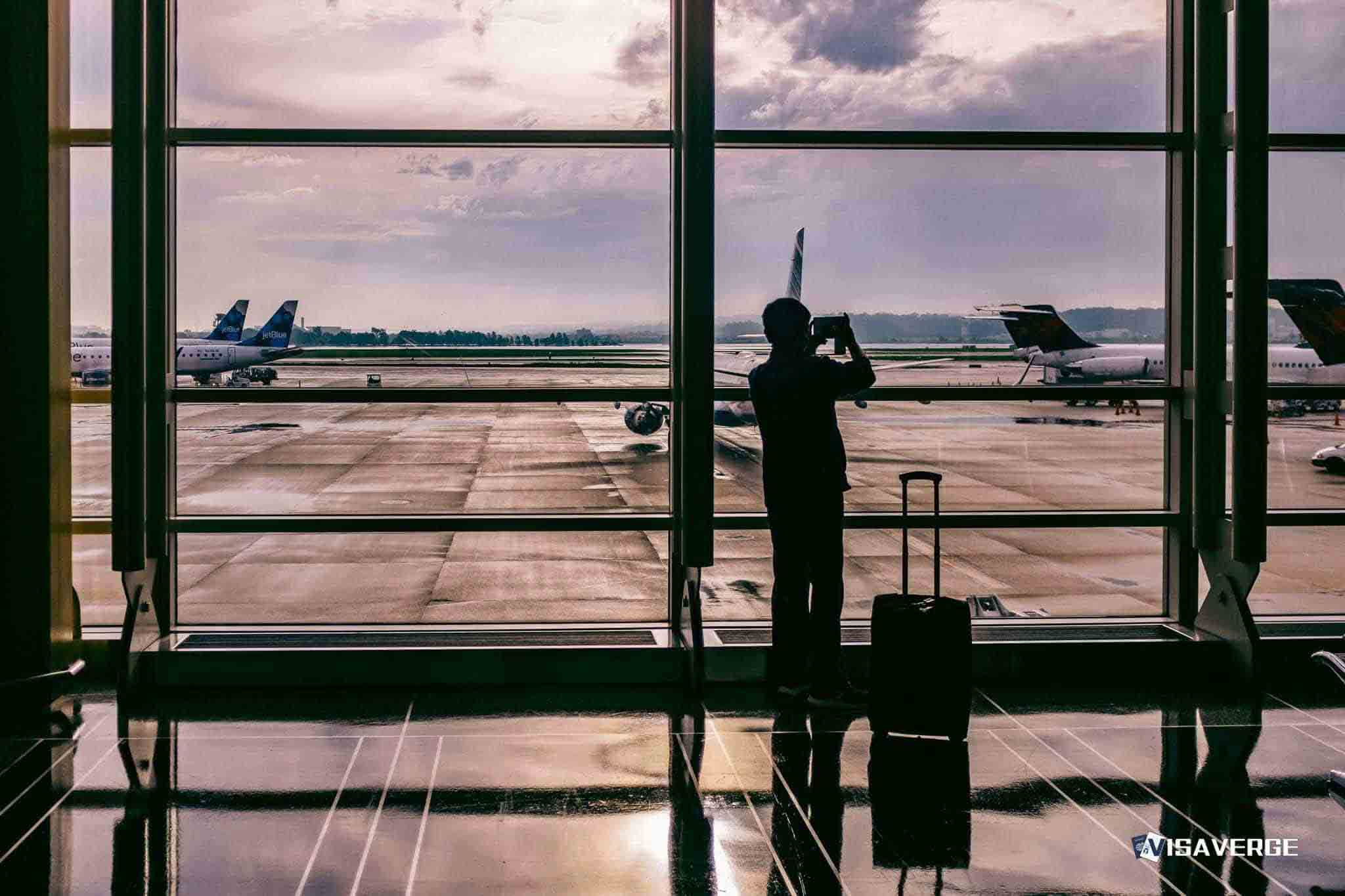Key Takeaways
• Five immigrants deported to Eswatini in July 2025 face solitary confinement at Matsapha Correctional Complex.
• US Supreme Court ruling permits deportations to third countries without ties, expanding Trump’s deportation policy.
• Deportees convicted of serious crimes; home countries refused return, prompting US third-country deportation program use.
Five immigrants from Vietnam, Jamaica, Cuba, Yemen, and Laos were deported by the United States 🇺🇸 to Eswatini 🇸🇿 in mid-July 2025. They are now being held in solitary confinement at the Matsapha Correctional Complex, Eswatini’s top maximum-security prison. This action follows a recent Supreme Court ruling that allows the US to send deportees to third countries, even when those countries have no previous connection to the individuals. The case has sparked debate about immigration policy, human rights, and the treatment of immigrants caught in international legal limbo.
Who Are the Deportees and Why Were They Sent to Eswatini?

The five men deported to Eswatini are citizens of Vietnam, Jamaica, Cuba, Yemen, and Laos. According to the US Department of Homeland Security (DHS), these individuals were convicted of serious crimes, including murder and child rape. One of the men was identified as a confirmed gang member. DHS officials, including Assistant Secretary Tricia McLaughlin, described them as “uniquely barbaric” and stated that their removal was necessary for public safety.
Their home countries refused to accept them back after their convictions and deportation orders. As a result, the US turned to its third-country deportation program, which allows the government to send deportees to countries with which they have no personal or family ties. Eswatini, a small country in southern Africa, agreed to accept the five men after months of high-level talks with US officials.
Arrival and Detention in Eswatini
Upon arrival in Eswatini, the five immigrants were taken into custody by local authorities. They are currently being held in solitary confinement at Matsapha Correctional Complex, located near the capital city of Mbabane. Eswatini officials say this is a standard security measure for high-risk offenders and is consistent with how similar cases are managed in the country.
The Eswatini government has stressed that the men are considered “in transit” and are not intended to remain in the country permanently. Officials say the men will eventually be repatriated to their home countries once arrangements can be made with international partners. However, there is no clear timeline for when this will happen.
Why Solitary Confinement?
Eswatini authorities have placed the five men in solitary confinement, also called “isolated units,” for security reasons. This means each man is kept alone in a cell, separated from other prisoners. According to Eswatini officials, this is a precaution to prevent violence or escape, especially since the men are considered high-risk and have no ties to the country.
Solitary confinement is a controversial practice. Human rights groups warn that keeping people alone for long periods can cause serious mental and physical harm. In this case, the government says it is necessary to protect both the men and the public while their cases are processed.
Official Statements and Stakeholder Perspectives
The Eswatini government has tried to reassure the public that the five immigrants pose no threat to national security. Spokespersons have emphasized that the men’s presence is temporary and that their detention follows months of careful planning and security checks with US officials. The government has also said it will work with international partners to arrange for the men’s eventual repatriation.
The US Department of Homeland Security has defended the deportations. DHS officials argue that the men “have been terrorizing American communities” and that their removal is needed to keep the public safe. They also point out that the US has few options when home countries refuse to accept deportees.
The International Organization for Migration (IOM), a United Nations agency that helps with migration and humanitarian issues, clarified that it was not involved in this operation. However, the IOM said it would be willing to help if asked, in line with its humanitarian mission.
Legal and Policy Background
The deportation of these five immigrants to Eswatini is part of a larger policy shift under the Trump administration. In July 2025, the US Supreme Court ruled that the government can send deportees to third countries, even if those countries have no connection to the individuals. This ruling cleared the way for the US to expand its third-country deportation program.
The Trump administration has used this policy to deport people to countries like Costa Rica, El Salvador, Panama, and South Sudan. In early July 2025, eight men were deported to South Sudan under similar circumstances. These actions have drawn criticism from immigration advocates and legal experts, who warn that sending people to countries where they have no ties can lead to indefinite detention and unsafe conditions.
How the Third-Country Deportation Program Works
When a person is ordered deported from the United States 🇺🇸, the government usually tries to send them back to their home country. However, some countries refuse to accept their own citizens, especially if they have been convicted of serious crimes. In these cases, the US looks for other countries willing to accept the deportees.
Under the third-country deportation program, the US negotiates agreements with countries like Eswatini to accept deportees on a temporary basis. The receiving country may hold the individuals in custody while arrangements are made for their eventual return to their home country or another destination.
This process often involves complex diplomatic negotiations and can take months or even years. In the meantime, deportees may be held in detention, sometimes in solitary confinement, as in the current case.
Concerns from Immigration Advocates and Legal Experts
Many immigration advocates and legal experts have raised concerns about the third-country deportation program. They argue that it can violate basic human rights, especially when deportees are sent to countries where they have no family, support, or legal status. There are also worries about the use of solitary confinement and the risk of indefinite detention.
Some experts warn that sending people to unfamiliar countries can expose them to danger, discrimination, or abuse. Others point out that the lack of clear timelines and oversight can leave deportees in legal limbo, with no way to challenge their detention or seek help.
According to analysis by VisaVerge.com, these policies create new risks for immigrants who have already served their sentences and are now caught between countries that do not want them. The site notes that the lack of transparency and accountability in these cases makes it hard to protect the rights of those affected.
Eswatini’s Role and Response
Eswatini’s decision to accept the five deportees followed months of talks with US officials. The government says it conducted thorough security checks and risk assessments before agreeing to the arrangement. Officials have stressed that the men are only in Eswatini temporarily and will be repatriated as soon as possible.
Eswatini has also said it will work with international partners, including the IOM, to arrange for the men’s safe return to their home countries. However, the government has not provided a specific timeline for when this will happen.
The case has put Eswatini in a difficult position. On one hand, the country wants to maintain good relations with the United States 🇺🇸 and show that it can handle sensitive security issues. On the other hand, it faces criticism from human rights groups and local residents who worry about the impact of holding foreign criminals in the country’s prisons.
Impact on the Immigrants and Their Families
For the five men at the center of this case, the future is uncertain. They are being held in solitary confinement in a foreign country, with no clear idea of when or if they will be sent home. Their families, if they have any contact, may not know where they are or what will happen to them next.
This situation highlights the challenges faced by immigrants who are caught in the crossfire of international politics and changing immigration laws. Many have already served time for their crimes and now face the prospect of indefinite detention far from home.
International Reactions and Humanitarian Concerns
The international community has taken notice of the case. Human rights organizations have called for greater transparency and oversight in the third-country deportation program. They urge the US and countries like Eswatini to respect the rights of deportees and to avoid practices like solitary confinement, which can cause lasting harm.
The IOM has offered to help with humanitarian support and repatriation if asked. However, as of now, the organization has not been involved in the case.
What Happens Next?
Negotiations are ongoing between the US, Eswatini, and the home countries of the five deportees. The Eswatini government has said it will work with international partners to arrange for the men’s repatriation, but there is no clear timeline. The process could take months or even longer, depending on diplomatic talks and the willingness of home countries to accept their citizens.
In the meantime, the five men remain in solitary confinement at Matsapha Correctional Complex. Their fate depends on the outcome of complex international negotiations and the evolving policies of the US and its partners.
Wider Implications for Immigration Policy
This case is part of a broader trend in US immigration policy. The Trump administration has made third-country deportations a key part of its enforcement strategy, especially for immigrants convicted of serious crimes. The recent Supreme Court ruling has given the government more power to send deportees to countries with which they have no ties.
Supporters of the policy argue that it is necessary to protect public safety and to deal with countries that refuse to take back their citizens. Critics say it violates basic rights and puts vulnerable people at risk.
The case also raises questions about the use of solitary confinement and the treatment of immigrants in detention. Human rights groups are calling for reforms to ensure that deportees are treated fairly and that their rights are protected, no matter where they are sent.
Practical Guidance for Affected Communities
For immigrants and their families, this case is a reminder of the importance of knowing your rights and staying informed about changes in immigration policy. If you or someone you know is facing deportation, it is important to seek legal advice and to contact organizations that can provide support.
The International Organization for Migration (IOM) can offer help with humanitarian support and repatriation in some cases. You can find more information about their services on the IOM official website.
For official updates on US immigration policy and deportation procedures, visit the US Department of Homeland Security website.
Conclusion and Key Takeaways
- Five immigrants from Vietnam, Jamaica, Cuba, Yemen, and Laos were deported by the United States 🇺🇸 to Eswatini 🇸🇿 in July 2025 after being convicted of serious crimes.
- They are being held in solitary confinement at Matsapha Correctional Complex while arrangements are made for their repatriation.
- The deportations are part of the Trump administration’s third-country deportation program, which has expanded following a recent Supreme Court ruling.
- The case has raised concerns about human rights, due process, and the treatment of immigrants in detention.
- Negotiations are ongoing, but there is no clear timeline for the men’s release or repatriation.
- Families and affected communities should seek legal advice and stay informed about their rights and available support.
As this situation develops, it will continue to shape debates about immigration policy, the rights of deportees, and the responsibilities of countries involved in third-country deportations. For now, the fate of these five men remains uncertain, highlighting the complex and often harsh realities faced by immigrants caught in the global immigration system.
Learn Today
Third-country deportation → Sending deported individuals to countries with no personal or family ties for temporary custody.
Solitary confinement → A prison practice isolating individuals in single cells to prevent violence or escape risks.
Matsapha Correctional Complex → Eswatini’s maximum-security prison where the five deportees are currently held in isolation.
US Supreme Court ruling → A July 2025 decision allowing deportations to third countries without prior connections to individuals.
Department of Homeland Security → US government agency responsible for immigration enforcement and deportation operations.
This Article in a Nutshell
In July 2025, five immigrants convicted of serious crimes were deported by the US to Eswatini, held in solitary confinement. This case reveals the impact of court decisions enabling third-country deportations and raises human rights concerns amid ongoing international negotiations for their repatriation.
— By VisaVerge.com













